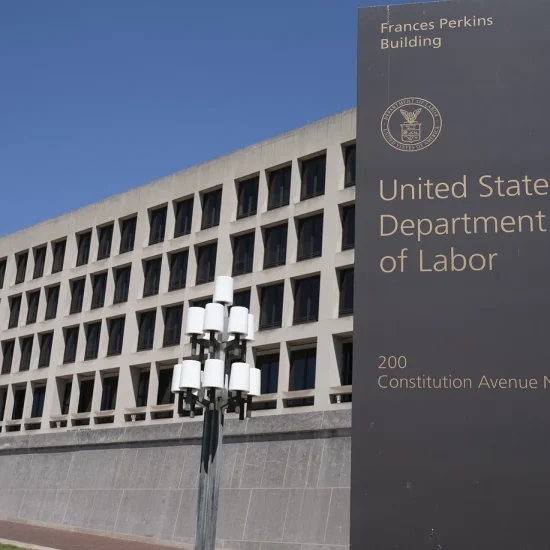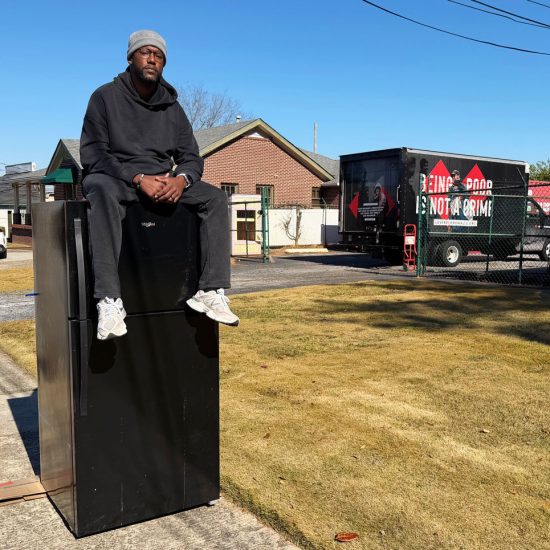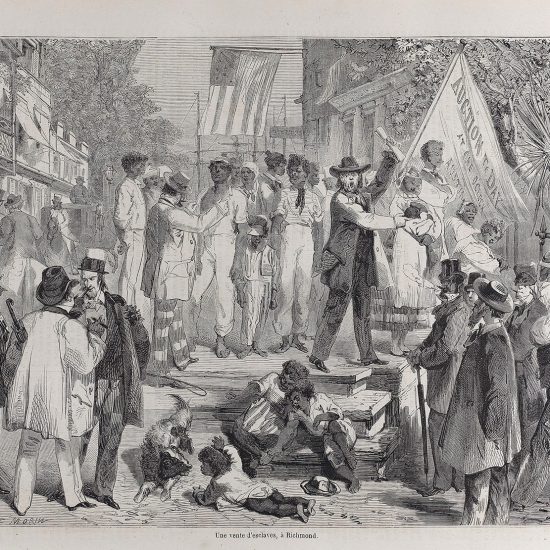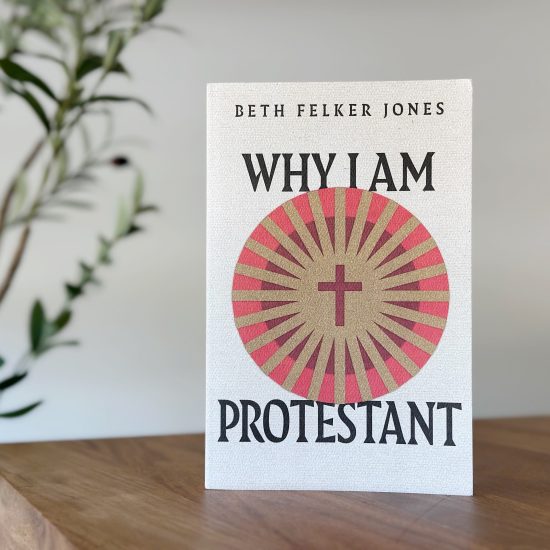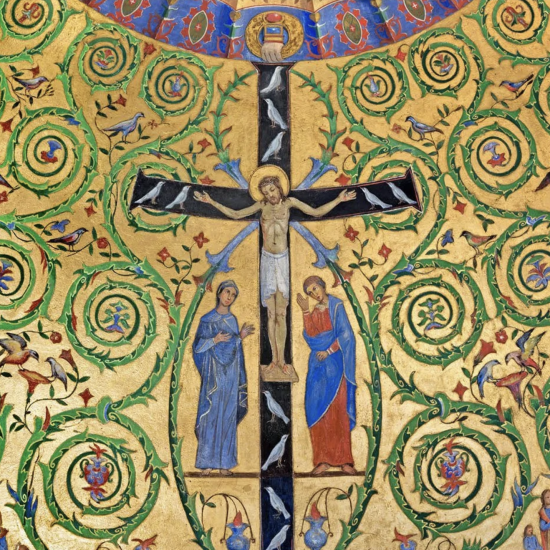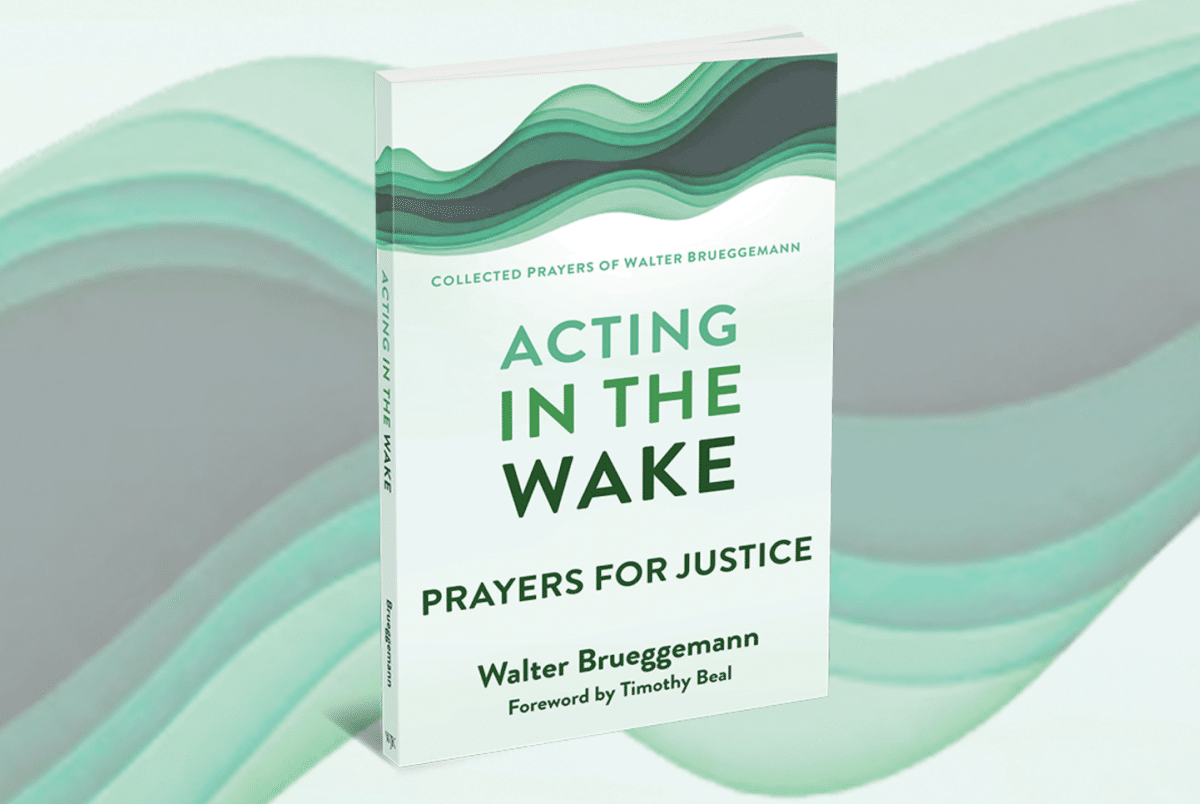
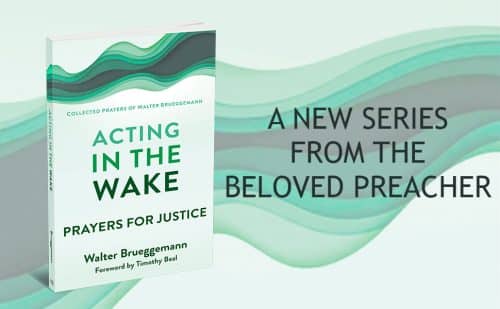
ACTING IN THE WAKE: Prayers for Justice (Collected Prayers of Walter Brueggemann). By Walter Brueggemann. Foreword by Timothy Beal. Louisville, KY: Westminster John Knox Press, 2023. Xxxiv + 118 pages.
Walter Brueggemann is known for his acumen as an Old Testament scholar, theologian, advocate for justice, prophetic preaching, and for his prayers. Many will know his book Prayers for a Privileged People, which likely sits on the desk or nearby shelves of many clergy (it is on a nearby shelf in my study). That collection was published in 2008, but Brueggemann hasn’t stopped writing prayers. Thus, we now have the first of what appears to be a new collection of Brueggemann prayers. This first volume in the Collected Prayers of Walter Brueggemann series is titled Acting in the Wake, with the subtitle giving us a more descriptive sense of what is to be found within the collection: Prayers for Justice.

Robert D. Cornwall
For many of us, Walter Brueggemann requires no introduction, at least among mainline Protestant clergy. While he is now retired from his teaching duties, and as I understand it, he has stepped away from most speaking duties, that doesn’t mean the presses have stopped running. New collections of his works are appearing regularly. Many of these new volumes do not contain new material but they do bring to our attention the breadth of his work. That, of course, includes his prayers offered in classes, chapel settings, and congregational settings. While these prayers have an original context, they often transcend the moment making them a valuable resource for readers.
This particular collection, Acting in the Wake, emerges from different occasions where Brueggemann was called upon to offer prayers over the past quarter century. In his preface to this collection, Brueggemann’s former student and now a professor at Case Western University, Timothy Beal, speaks of Brueggemann’s engagement with the text of Scripture that is evident in these prayers: “He puts on the biblical text like a well-worn, course-wool coat. It’s no comfy barn jacket, nor a glorious coat of many colors. It’s a garment that never quite fits: it pinches, scratches, bunches, and binds; it’s a little too warm in the summer and not warm enough in the winter; and it’s never really in style. Yet there’s no imaging him going out without it” (p. ix). For those who have read or heard him speak that description is apt. At least in his later years, as I’ve encountered him, he has that prophetic visage that fits with the prophetic messages that challenge the listener. These prayers also serve to challenge us, at times making us uncomfortable, even as they draw us into the presence of God.
In addition to Timothy Beal’s foreword, Brueggemann provides two prefaces to the collection series and the collection. In the first preface, Brueggemann speaks to the connection that exists between the text of scripture, especially the prophetic texts, and the act of prayer. He suggests that the practice of leading public prayer is “an act of inviting and engaging the present company in that conversation of the heart. As a result, the voicing of prayer needs to be specific enough to have content, but porous enough not to coerce, permitting others present to bring their own nuance to that conversation of the heart” (p. xxvi). With that in mind, Brueggemann seeks to model for us patterns of prayer that we can use in our own prayers, even as we draw inspiration from his prayers.
Brueggemann divides this collection into two sections. Section One is titled “Prayers of We Justice.” The second section is titled “Prayers of Thou Justice.” Brueggemann writes that the “We-Thou juxtaposition of these prayers indicates that the work of justice is a bilateral, covenantal enterprise that involves both human work and the work of the gospel God. the we-prayers bespeak a resolve to engage in the troublesome, glorious work of justice as our proper human occupation.” (p. xxxi). Regarding the thou-prayers, they are designed to “urge, move, and mobilize God to actions that authorize and cohere with our own faithful actions for justice.” (p. xxxii). We-prayers, Brueggemann suggests, they are often offered by people of privilege so that these prayers “are in fact a bold contradiction of our seeming best interest,” while the Thou-prayers are offered by “those who have moved beyond our comfortable bourgeois religion to grasp some serious way the radicality of the gospel” (p. xxxii). Both kinds of prayers model for us a way of engaging in conversation with God that moves both God and us toward justice.
I quickly took note of the fact that the first prayer in Section One was offered on a National Day of Prayer. I noted this because I’ve participated in several interfaith National Day of Prayer observances. With that in mind, consider these words for that event that serve as a challenge to those of us who pray that day in the United States: “We are a people blessed with flourishing land that is marked by beauty and prosperity. We are, at the same time, a people bent on war and domination, violence, and torture.” (p. 2). In addition to this prayer shared on that day, the first section contains the largest number of prayers. These prayers cover a wide variety of instances where prayer is needed, including several given on the day of and the days after 9-11. Many of these prayers emerge from texts of Scripture under consideration, often emerging as one might expect from the Hebrew Bible. There is even a prayer for the day Kurt Vonnegut died. That might seem odd, and yet it speaks of concerns for justice that emerge from Vonnegut’s writings. Consider this message found in the prayer, concerning Vonnegut: “His Dresden was filled with bombs dropped indiscriminately, and civilians burned savagely, and crackling flames and falling buildings, and violated culture, and acres and acres of inhumanity.” If one knows the author, one will know the context of these words. That particular prayer concludes with the words: “We give you thanks for his life and for his testimony, and we pray that by your sturdy rule and by our deep repentance it may yet ‘go’ differently. Amen” (pp. 16-17).
When we turn to Section Two, where we encounter Brueggemann’s Thou-Prayers, we discover that many of these prayers emerge either from his class sessions or worship services. They as one might expect often draw from the Hebrew Bible. The first prayer in this section is titled “On Beginning Lament Psalms.” In this prayer, the “truth-doing God” is bid to “veto the hunger and poverty in our world, override the need and abandonment and anxiety so palpable among us, and cancel out the hurt and the dying so pervasive in our world, move peaceably against violence and enact your shalom in the face of our threats of war.” (p. 72). The final prayer in the section, the prayer that brings Acting in the Wake to a conclusion is offered on the First Sunday of Lent. It reflects on the reading from Genesis 9:8-17, a passage that speaks of God’s covenant with Noah, which is marked by the rainbow and the promise of “never again.” Brueggemann “boldly addresses” God as “our faithful savior.” However, he prays that “we come into your presence sensing that we are forgotten even if not left behind, ignored, disregarded, trivialized, unappreciated . . . ” Nevertheless, having confessed our sense of abandonment, he then draws on a word of hope, praying: “And then we are caught up short by your rainbow remembrance, the light of glory that shines through waters of generosity, light and water made into rainbow reminder, and we sense that we are more remembered and taken seriously than we had noticed.” (p. 117).
I have lifted up a small selection of Brueggemann’s prayers to give the prospective reader a sense of what might be found in the collection. For those who are acquainted in some way with Brueggemann the scholar and writer, the excerpts I’ve chosen should resonate. For those who have less exposure to Brueggemann the scholar and preacher and crafter of prayers, I hope that these excerpts will serve as an encouragement to engage with this collection. That Brueggemann wrote a Preface to Volume 1, suggests that Acting in the Wake is the first of several collections of prayers. My hope is that this collection will serve the church well as we seek to embody the justice of God, a work that begins in prayer. As such, this collection of prayers should be a welcome contribution to one’s desk, so that they might be drawn upon in those moments when justice calls us to prayerful action.
This review originally appeared on BobCornwall.com.
Robert D. Cornwall is an ordained minister in the Christian Church (Disciples of Christ). Now retired from his ministry at Central Woodward Christian Church (Disciples of Christ) of Troy, Michigan, he serves as Minister-at-Large in Troy. He holds a Ph.D. in Historical Theology from Fuller Theological Seminary and is the author of numerous books including his latest “Second Thoughts about the Second Coming: Understanding the End Times, Our Future, and Christian Hope” coauthored with Ronald J. Allen. His blog Ponderings on a Faith Journey can be found at www.bobcornwall.com.


